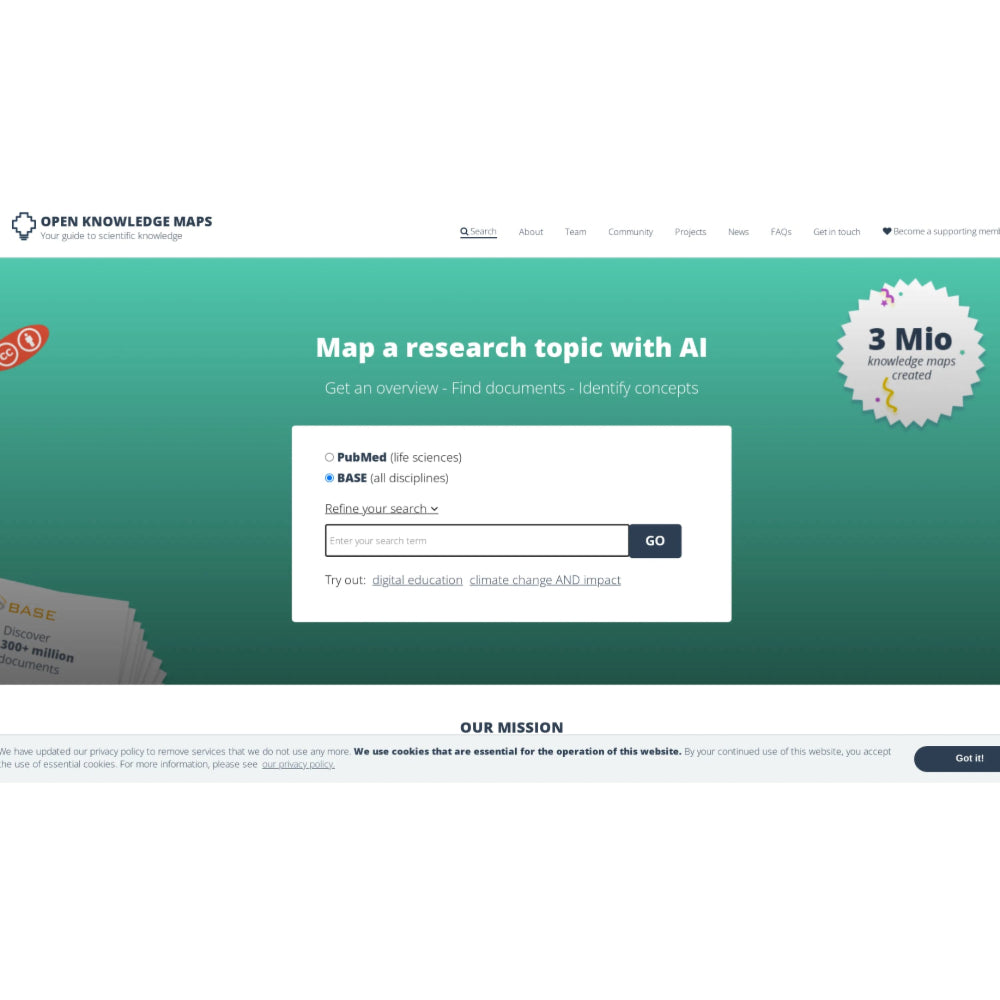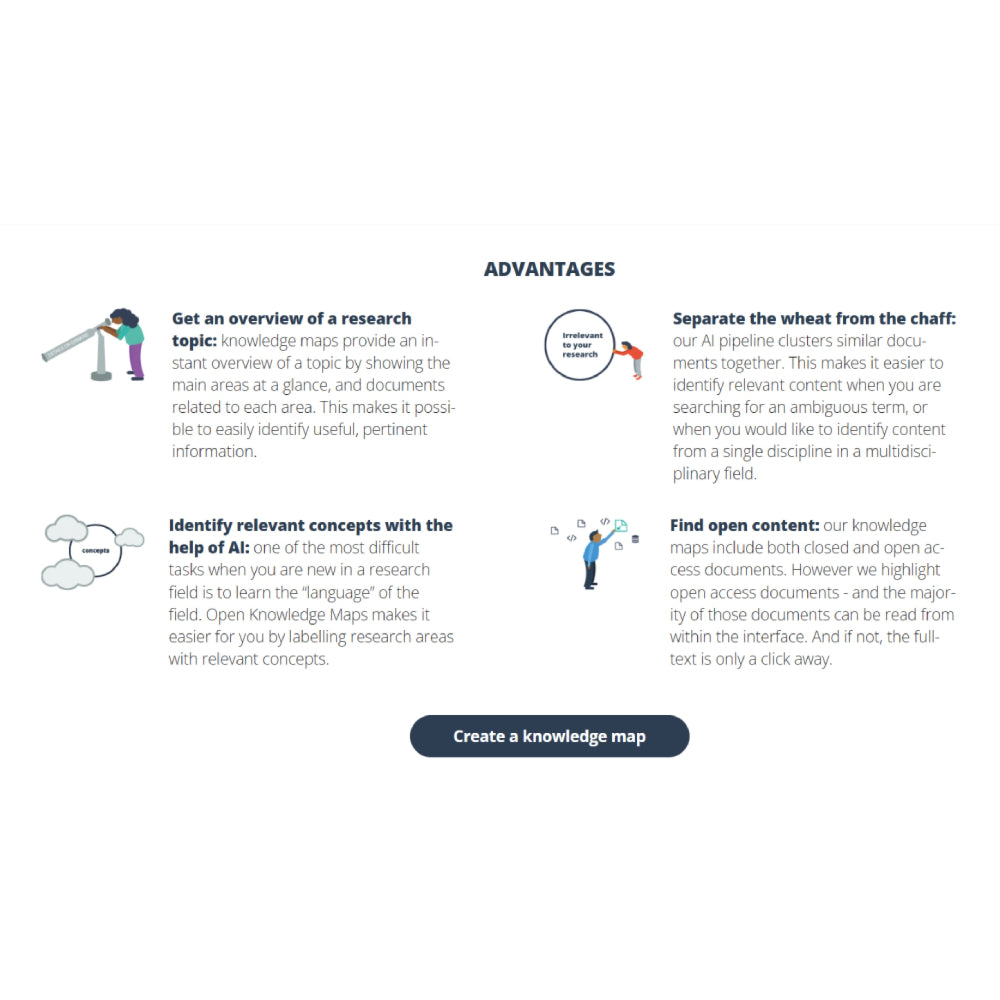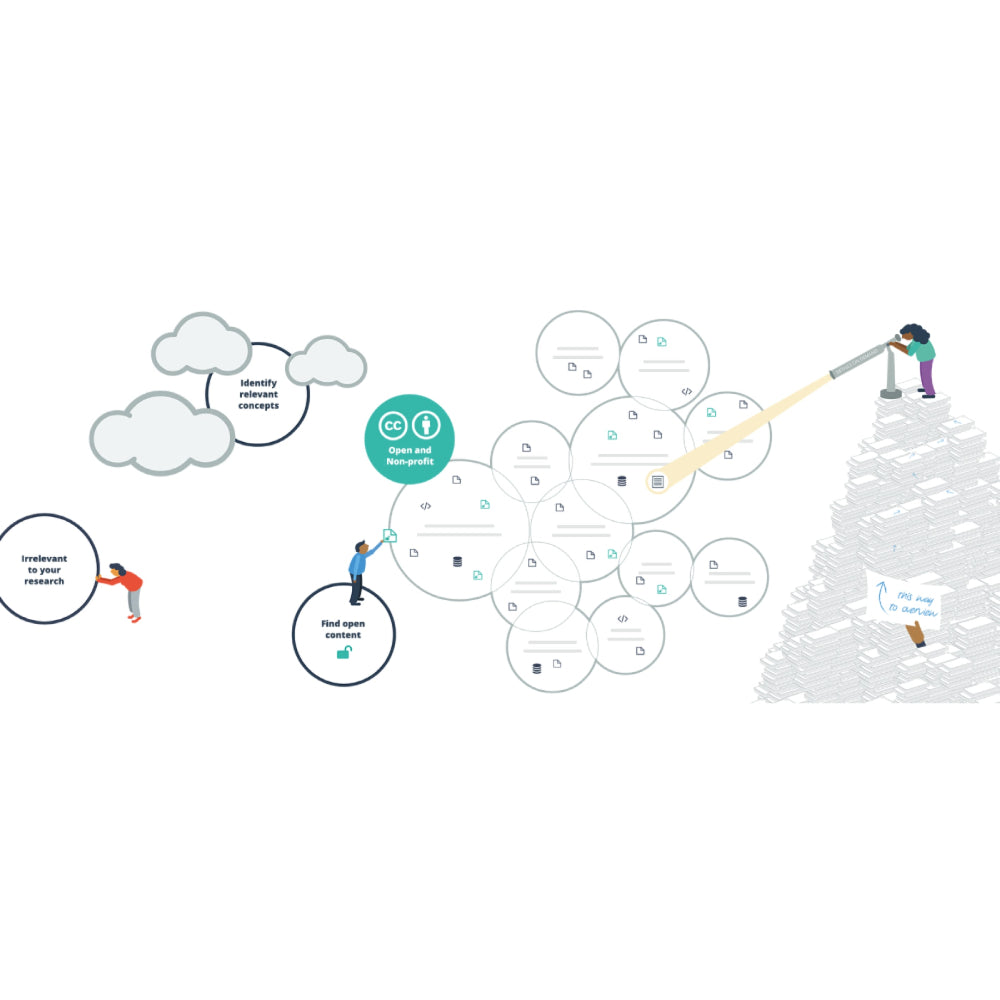







Open Knowledge Maps transforms the way researchers and learners discover scientific knowledge. Using AI-driven clustering, it creates visual maps that highlight connections between papers, authors, and concepts, helping users quickly identify relevant literature. Its open-access, nonprofit model ensures equitable access to knowledge across disciplines while empowering institutions with integration options. With a strong commitment to open science and transparency, Open Knowledge Maps supports researchers, educators, and policymakers in making evidence-based discoveries more efficient and impactful.
Key Features
AI-powered clustering for interactive knowledge maps
Open-access and nonprofit platform aligned with open science
Custom integrations for institutional platforms
Backed by a global network of supporting members and institutions
Cross-disciplinary discovery for collaboration and innovation
User-friendly interface requiring no technical expertise
Industries
Academic Research
Education & Libraries
Policy & Public Sector
Nonprofits & NGOs
Research Institutions